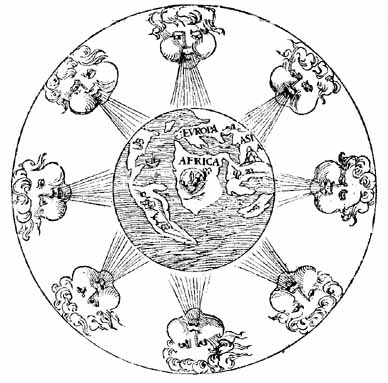CFP: What was "enlightened" about critical historiography in eighteenth-century Central Europe? - ISECS Graz 2011 - Deadline: March 2011
What was "enlightened" about critical historiography in eighteenth-century Central
Europe?
The epithet enlightened has been pinned on eighteenth-century critical historiography in
Central Europe with lavish praise and rancorous spite. This ascription may have occluded
important epistemic and practical conduits eminent historians of the region like József
Benczúr, Gelasius Dobner, István Katona, Konstantin F. A. Kauz, Franz Adam Kollár,
Károly Koppi, Adam Baltazar KrÄelić or György Pray remained indebted to. Kollár e.g.
derived important explanatory devices and templates from the work of Hugo Grotius, Étienne
Baluze and Pierre de Marca. By the same token the possible dilution of
“Enlightenment’s†heuristic capacity, allegedly accounting for the intellectual profile of our scholars,
may also have severed their bonds to predecessors in the region, the generations of the
brothers Bernhard and Hieronymus Pez, Oliver Legipont and Martin Gerbert. This call invites
contributions which re-envisage and reappraise the enlightened nature of critical
historiography in the Habsburg lands. Submitted proposals are not restricted to the personae
mentioned. Preference will be given to papers which propose to creatively connect several of
these five tenets:
1. The methods, parameters and scholarly self-authentication of critical
historiography. Both new vistas and avenues on the reception of Bollandists, Maurists or
Muratorian historiography and on the self-fashioning of the scholarly personae, (shifting
conceptions of monastic life, chairholders and librarians) are welcome. So is research on key
concepts (liberty, law, state, regium, gentes) and on networks and intellectual milieux of
circulation (correspondence, learned associations like the societas incognitorum, György
Klimó’s circle at Pécs etc.) and, as intimated, on the interaction and sequence of
different generations of scholars and their mutual perceptions in the region. Can we plausibly
situate the historians’ contribution on a trajectory from historia sacra to
philosophical, let alone “civil†history (Arno Seifert)?
2. The political prompters and ligatures of critical historiography, its
regalist function, buttressing the Theresian-Josephinian expansion of the state and its affinity
to ecclesiastical prerogatives and/or the revindication of the Estates’ rights. Does it
make sense to couch these alternatives in terms of ,rival Enlightenments’? Examples
could be e.g. Prince Kaunitz’s function as a Maecenas for Pray and Kollár, Nikola Škrlec
as a student of KrÄelić, the Estates’ neglected sponsorship of historiography.
3. Catalysts and Contours of Religion: How did Protestant and Catholic styles of
history-writing differ from each other in our region? Can one convincingly speak of
distinct transgenerational “epistemic cultures†(e.g. the Hungarian “Jesuit school†as
described by G. Hölvényi) from Hevenesi and Samuel Timon to Pray and the Debrecen
“schoolâ€). To what extent were these traditions engulfed, made more rigid or transformed by
ireinic and Josephinian attitudes?
4. Critical historiography’s themes of research: The scrutiny of chronics and
legends (Dobner’s edition of Hajek of LiboÄan, studies on John of Nepomuk) regional
preoccupations in the cases of Saint Ivan, the Great Moravian Empire, Cyrill and Method,
Croatia’s subservience to the Hungarian primatial see, the historiographical tradition of
adjoined, appurtenant countries (Nebenländer), the upsurge of the history of law.
5. The legacy of later eighteenth-century historiography to liberal historians
of the Habsburg lands, like e.g. Mihály Horváth and František Palacký, regarding their
“scenes of enquiry†(Nicolas Jardine), conceptual tools and notions of historical
method.
Proposals should be submitted per e-mail to franzfillafer@gmail.com until March 2011.
Papers will be due on 15th of June 2011, and pre-circulated among the participants.
--
MMag. Franz Leander Fillafer
"Zeitkulturen"/ Exzellenzcluster 16
"Kulturelle Grundlagen von Integration"
Universität Konstanz
Gebäude Y Raum 213
78457 Konstanz
http://www.exc16.de/cms/fillafer.html
http://www.ifk.ac.at/fellowships__fellow_list.php?id=132
franzfillafer@gmail.com

